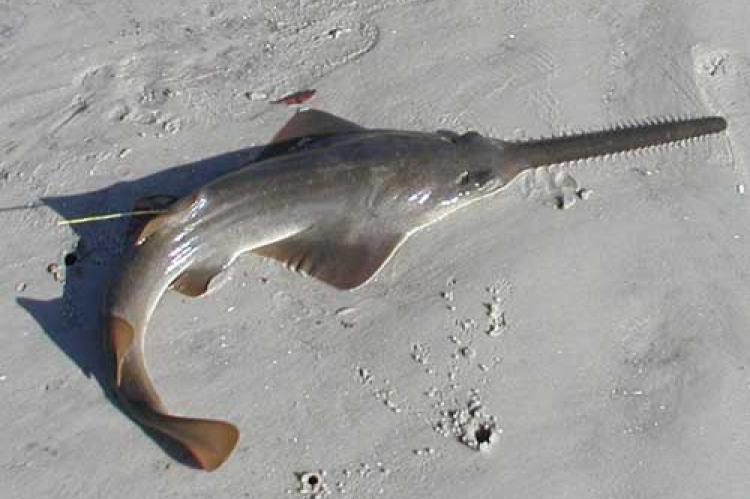1 minute
Sawfish able to clone itself in the wild
Sawfish in rivers in Florida appear to have given birth without sex – essentially cloning themselves.
Facultative parthenogenesis — the ability of sexually reproducing species to sometimes produce offspring asexually — is known from a wide range of ordinarily sexually reproducing vertebrates in captivity, including some birds, reptiles and sharks. Despite this, free-living parthenogens have never been observed in any of these taxa in the wild.
The smalltooth sawfish is the first documented examples of viable parthenogens living in a normally sexually reproducing wild vertebrate.
The researchers analysed telltale markers called microsatellites in 190 sawfish that reveal how related their parents are. In seven fish, the markers suggested their parents were identical to them. The analysis revealed that the seven fish came from three different mothers.
Facultative parthenogenesis might have adaptive significance. It is reasonable to hypothesize that parthenogenesis would be found most often at low population density, when females risk reproductive failure because finding mates is difficult.


